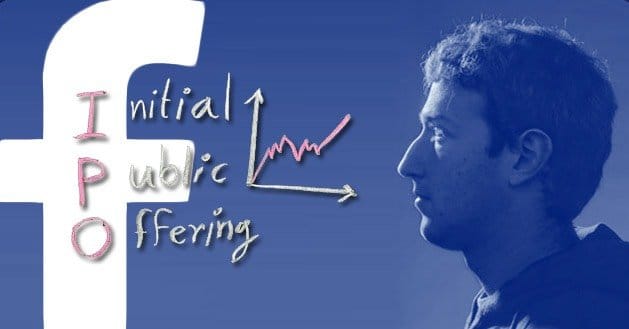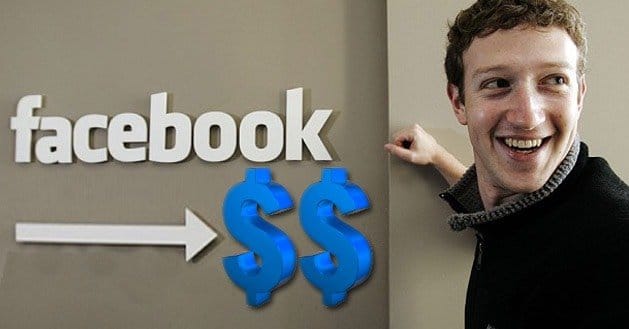 Written by ContentPowered.com
Written by ContentPowered.com
On May 18, 2012, Facebook made history by offering shares of its stock to the general public. It was the biggest initial public offering in internet history, with a peak market capitalization just over $100 billion. Unfortunately, many unforeseen problems undermined Facebook’s IPO and the chaotic ripple effects were felt both on Wall Street and in Silicon Valley.
It’s Not For Sale… Yet…
For nearly a decade following Facebook’s establishment in 2004, co-founder and CEO Mark Zuckerberg flat-out refused to take the company public, even turning down purchase offers made in 2006 by Viacom for $750 million and Yahoo for $1 billion. Four years later, he was still saying that Facebook was “in no rush” to make an initial public offering.
However, in the interest of survival, the popular social media did take private investments from small companies, mostly Silicon Valley tech firms. In addition, in late 2007, Microsoft purchased a 1.6% stake in Facebook for $240 million with the stipulation that Microsoft would be allowed to sell internet advertisements for Facebook while the site continued to expand its membership base outside the United States. Two years later, Digital Sky Technologies, a Moscow-based international investment firm bought a stake of almost 2% in Facebook, and by 2011, an investment report indicated that the company was valued at $50 billion.
Time To Go Public
According to the legislation added to the Security Exchange Act of 1934, any company with 500 shareholders or more must divulge information about its financial performance to the Securities and Exchange Commission. Although the company can opt to remain private, it must still file paperwork similar to documents required of public companies.
Through the years, companies that made early investments in Facebook such as Accel and Digital Sky Technologies sold down their stakes in private markets, which enabled Facebook to accumulate more than 500 shareholders. As a result, the only logical option for Zuckerburg and Facebook was to take the company public, though Zuckerberg would retain control of the company.
On February 1, 2012, Facebook filed its S1 paperwork with the SEC. Three years prior, precautions were made to enable early investors to keep their stake in the company through the use of a dual-class stock structure.
High Hopes and Grave Doubts
In early May, demand was strong and the valuation of Facebook’s stock was estimated at $28 to $35 a share. Zuckerberg hit the road to pitch Facebook’s initial public offering to investors. Unfortunately the trip began awkwardly, as New York investors who wanted to speak directly to Zuckerberg about Facebook’s business strategy instead were shown a half-hour video which they could have viewed online. When he did meet directly with investors, Zuckerberg was casually dressed a hooded sweatshirt. While business analysts scoffed at what they considered a lack of seriousness, some bloggers likened Zuckerberg to late Apple founder Steve Jobs as an eccentric, iconoclastic visionary who preferred to answer to nobody. Nonetheless, when the tour stopped in Boston, Zuckerberg and the infamous video were conspicuously absent and Facebook’s COO Sheryl Sandberg fielded pointed questions from investors about the company’s IPO.
Speculation from analysts and investors was mixed. Lee Simmons of Dun and Bradstreet predicted first-day gains for Facebook stock in the neighborhood of 10% to 20%, whereas others speculated that the stock’s value could increase by as much as 50% or more. Others, particularly on Wall Street, were less optimistic and expressed that the social networking firm had to radically boost its revenue stream to justify what many saw as a bloated valuation. Nonetheless, two days before the launch, Facebook announced that due to high demand, it would offer 25% more shares than had been planned for a grand total of 421 million in all, priced at $38 each.
The Bell Is Rung
On the morning of Friday, May 18, 2012, Mark Zuckerberg rang a bell from Hacker Square on Facebook Campus in Menlo Park, California to announce that the trading had begun. 3,000 miles away, an electronic billboard on the Thompson Reuters building in New York’s Times Square displayed the message “NASDAQ WELCOMES FACEBOOK MAY 18, 2012.”
Unfortunately, from the beginning, there were numerous hassles. Trading was delayed for nearly half an hour due to technical problems with the NASDAQ exchange and throughout the day, numerous computer glitches either confused investors as to whether or not their orders were successful or prevented orders from going through altogether. Although initial trading brought the value of the stock up to $45, the price per share struggled to stay above the IPO price for most of the day. By the closing bell, the shares value stood at $38.23.
Although a gain of less than a quarter dollar per share was seen as disappointingly paltry by the majority of the financial press, Facebook’s IPO set a new trading volume record, with 460 shares being sold. $16 billion was also raised, making the offering the third largest in U.S. history, just behind those of Visa, Inc. and General Motors. The value of Zuckerberg’s stock rose to $19 billion. Sadly, dark days loomed ahead.
The Bloom Goes Off The Rose
On the next day of trading following the IPO, the stock closed at $34.03, nearly four dollars less than its initial price. By the end of its first full week, the stock’s price had fallen to #31.91, and by the end of May it had lost a quarter of its starting value. By June 6, investors had lost $40 billion, and the financial press widely viewed the event as a fiasco that caused considerable damage on Wall Street as prices declined within the exchanges, particularly among tech companies. Within three months, Facebook’s stock had dwindled to less than half its IPO value.
As a result of investors taking heavy losses, Facebook; Morgan Stanley and Goldman-Sachs, the financial institutions that served as the primary underwriters for the IPO and the NASDAQ exchange were served with numerous lawsuits. Many of these writs were issued in the wake of an investigation on the part of the Financial Industry Regulatory Authority as to whether or not Morgan Stanley, Goldman-Sachs and other banks underwriting Facebook’s IPO had given the general public enough adequate information. Massachusetts Secretary of State William Galvin served a subpoena to Morgan Stanley citing the same issue, and both Morgan Stanley and Goldman-Sachs‘ reputations as IPO underwriters among tech companies suffered appreciable damage as investors, tech entrepreneurs, bloggers and government regulators alike suspected a pump-and-dump scheme.
What Does The Future Hold?
Facebook’s stock began to climb upward shortly in late November 2012, this rebound no doubt owing to revenue generated by Christmas shopping. Throughout the first half of 2013, the value zigzagged between $22 and $32. By the end of July, steady, abundant gains were reported and come the beginning of August, the value had climbed back to above the IPO price. As of this writing, Facebook stock is valued at $38.50.
Although this uptick came as a result of an increase of advertisements being sold on tablet computers and mobile smartphones, assessments among analysts and investors have been mixed. Some believe that despite the misfortunes surrounding the IPO, Facebook has shown endurance and will prosper as it continues to monetize its mobile user base. For example, DynaLink COO and Facebook shareholder Larry Fishelson predicts that growing ad revenue will push Facebook stock to $50 a share before the end of this year.
“If everybody is trying to figure out, ‘How are they getting into mobile? What are they doing?’ — that’s the time to buy,” he mused.
However, longtime analyst Keith Fitz-Gerald is less optimistic, comparing Facebook to Eastern Air Lines and Palm, Inc., now-defunct companies whose over-hyped stock under-performed in the market. “Facebook may prove to be a great short-term trading opportunity,” he cautions, “but I remain absolutely convinced it has no place in a long-term investor’s portfolio.”

Raymond Dianito
says:Although this uptick came as a result of an increase of advertisements being sold on tablet computers and mobile smartphones, assessments among analysts and investors have been mixed. Some believe that despite the misfortunes surrounding the IPO, Facebook has shown endurance and will prosper as it continues to monetize its mobile user base.